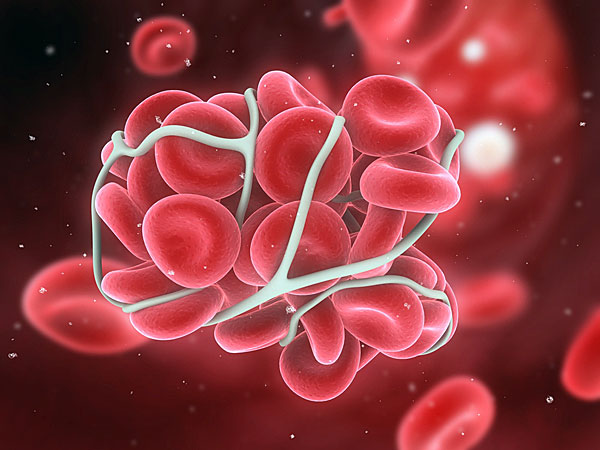Just In
- 5 hrs ago

- 6 hrs ago

- 9 hrs ago

- 13 hrs ago

Don't Miss
- Finance
 Gold Prices In US: Yellow Metal Rates Surge Amid Escalating Tensions In Middle East; Hit Record High
Gold Prices In US: Yellow Metal Rates Surge Amid Escalating Tensions In Middle East; Hit Record High - News
 There's No INDIA Alliance In West Bengal, Says Mamata Banerjee, Alleges Congress Joined Hands With BJP
There's No INDIA Alliance In West Bengal, Says Mamata Banerjee, Alleges Congress Joined Hands With BJP - Sports
 PAK vs NZ 2nd T20I: Will Rain play spoilsport in Rawalpindi on Saturday?
PAK vs NZ 2nd T20I: Will Rain play spoilsport in Rawalpindi on Saturday? - Movies
 Arti Singh & Dipak Chauhan Haldi: Wedding Function Kickstarts, Bride-To-Be Says 'Dhol Nagare Bajne Chahiye'
Arti Singh & Dipak Chauhan Haldi: Wedding Function Kickstarts, Bride-To-Be Says 'Dhol Nagare Bajne Chahiye' - Automobiles
 Suzuki Swift Hatchback Scores 4 Star Safety Rating At JNCAP – ADAS, New Engine & More
Suzuki Swift Hatchback Scores 4 Star Safety Rating At JNCAP – ADAS, New Engine & More - Education
 NLSIU Announces the Rajiv K. Luthra Foundation Grant
NLSIU Announces the Rajiv K. Luthra Foundation Grant - Technology
 Dell Introduces AI-Powered Laptops and Mobile Workstations for Enterprises in India
Dell Introduces AI-Powered Laptops and Mobile Workstations for Enterprises in India - Travel
 Journey From Delhi To Ooty: Top Transport Options And Attractions
Journey From Delhi To Ooty: Top Transport Options And Attractions
Fatal Effects Of Blood Clots You Need To Know!
Blood clots are formed when the body tries to save a damaged blood vessel. However, in certain cases this can cause severe damages to the body and sometimes prove to be fatal.
Blood clots are a set of sticky blood cells that thicken when a blood vessel is damaged. The body creates blood clots as an ordinary reaction to blood vessel damage. The primary job of the blood clot is to seal the flow in a damaged blood vessel.
When a blood clot forms in multiple arteries that supply blood to the heart, it obstructs the blood circulation to a part of the heart muscle, reducing or totally cutting off the oxygen supply to the cells in that region.

Existence of an obstructing blood clot is definitely referred to as thrombosis. Thrombophlebitis is an irritation of the vein in the region where a blood clot has formed. Superficial thrombophlebitis happens when a blood clot changes veins near the skin surface, or superficial veins.
Deep venous thrombosis happens when a blood clot changes deeper, larger veins, like those in the lower legs and thighs. These clots can break from a blood vessel and result in a pulmonary embolism if they go to the lungs.
Ischemic strokes can be caused by blood clots that have formed in the heart as a result of rhythm disorder known as atrial fibrillation and atrial flutter. The existence of man-made replacement heart valves may also lead to blood clot formation.

Some blood clots might form in a narrowed artery as a consequence of atherosclerosis, commonly known as hardening of the arteries.
Flow of blood in the veins depends upon contraction of surrounding muscles, and with inactivity, like extended bed rest, the blood begins to collect and blood clots may easily form.
In case of DVT, a blood clot in the leg can cause pain, swelling, redness and excessive heat. A blood clot that formed in deeper and larger veins, like those of the legs, stomach and pelvis, may break away and start to become a travelling blood clot, or embolus.
-
 disorders cureCOVID-19 And Blood Thinners: How Do They Help Increase Survival Rates In Critical COVID-19 Patients?
disorders cureCOVID-19 And Blood Thinners: How Do They Help Increase Survival Rates In Critical COVID-19 Patients? -
 wellnessThese Interesting Facts About Blood Clots Will Shock You
wellnessThese Interesting Facts About Blood Clots Will Shock You -
 wellnessNatural Foods That Prevent Blood Clots
wellnessNatural Foods That Prevent Blood Clots -
 wellness9 Types Of People Who Are Prone To Blood Clots; Are You One Of Them?
wellness9 Types Of People Who Are Prone To Blood Clots; Are You One Of Them? -
 wellnessWorld Haemophilia Day: Lifestyle Remedies For Haemophilia
wellnessWorld Haemophilia Day: Lifestyle Remedies For Haemophilia -
 wellness8 Excellent Reasons Why You Need To Include Brinjal In Your Diet
wellness8 Excellent Reasons Why You Need To Include Brinjal In Your Diet -
 wellness7 Herbs And Spices That Can Prevent Blood Clots
wellness7 Herbs And Spices That Can Prevent Blood Clots -
 disorders cureImmune System Implicated In Fatal Cerebral Malaria
disorders cureImmune System Implicated In Fatal Cerebral Malaria -
 disorders cureDrug For Anemic Cancer May Raise Death Risk!
disorders cureDrug For Anemic Cancer May Raise Death Risk!


 Click it and Unblock the Notifications
Click it and Unblock the Notifications



